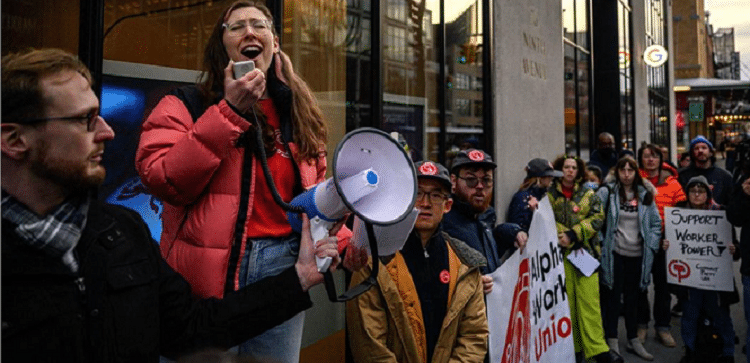While major firms are letting go of many employees, it appears that mass layoffs are well underway. And they want to finish it quickly.
Companies are frequently compelled to make snap judgements to preserve their financial records, according to Jason Averbook, CEO and co-founder of the digital business Leapgen. Even though it sounds horrible to put it like way, the quicker they can get folks out, the better.
In light of the current economic situation, he stated, there needs to be a “course correction.”
“The types of businesses that are laying off employees are typically those that experienced significant growth during COVID. There [was] a lot of hiring going on for a variety of different company [needs], as well as because people were seeing this digital acceleration unfold and unsure of what was coming next.
How not to do things right
There is a proper manner for these firms to fire so many employees simultaneously, and one business is under investigation. Twitter is a prime example.
Recent significant layoffs under Elon Musk’s management resulted in legal repercussions for the company. Some employees claimed that severance payouts were less than promised, and others claimed that the corporation discriminated against them for exercising their labour rights.
Three employees believe the company has not committed to paying them the severance they were promised when Musk acquired it, so a Los Angeles attorney filed individual arbitration cases on their behalf.
The employees’ solicitor, Lisa Bloom, stated that she is willing to file hundreds more of these complaints on behalf of Twitter workers and independent contractors. Arbitrations are handled in a private setting, unlike lawsuits, which are filed and litigated in open court.
The business was also mentioned in two National Labour Relations Board complaints. In one labour board case, Twitter is accused of firing a worker for failing to organise a strike with other employees.
According to the complaint, the walkout scheduled for November 17 never happened because Musk’s email warning staff to be “very hardcore” if they wanted to keep their jobs dissuaded them from going on strike.
How to proceed legally
A barrister advised that there are some things to be cautious of while attempting to do so legally in light of all of this turmoil and change.
“Reports of employees being locked out of their work accounts or receiving their termination notices through email may sound like a dystopian nightmare. Yet given the current economic climate, numerous tech firms have started letting go of workers by the truckload, altering the employment landscape in the process, according to Paulette Haynes, founder and managing partner of Haynes Law Firm.
“The employer may be liable for further fees if dishonest, deceptive, or even excessively insensitive.” She said that in one recent case, Pohl v. Hudson’s Bay Company, 2022 ONSC 5230, the court fined the employer for forcing an employee out of the front entrance of the workplace despite the employee’s not having grounds for a complaint of wrongdoing.
“It appears, more than ever, that companies must exercise caution when dismissing employees because courts are prepared to investigate their behaviour,” said the author.
A future of expansion?
Yet, many companies have the opposing view in one nation, and the timing is right for labour investments rather than widespread layoffs.
According to a new report, despite worries about inflation and macroeconomic uncertainty, CEOs throughout New Zealand are increasing their investments in talent to promote long-term transformation.
In the next 12 months, 86% of the 142 New Zealand CEOs surveyed for PwC’s 26th annual Global CEO Survey plan to invest in upskilling their workers in priority areas.
According to PwC’s research, 79% of local CEOs anticipate a drop in global economic growth over the next 12 months, while 76% predict a similar decline in domestic economic development.
Given the difficulties encountered in recent years, this “increasing pessimism” among New Zealand’s leaders is “not surprising,” according to Mark Averill, CEO and senior partner at PwC New Zealand.
In the next 12 months, 38% of respondents stated they feel extremely or highly exposed to inflation, with 26% citing macroeconomic uncertainty.
“Interest rates, inflation, and recession talk were all the rage when the study was conducted in the latter part of last year. The findings amply demonstrate how important these concerns are to CEOs, according to Averill.










